Ancient Akko and the Apple App Store - Shelly Palmer - MediaBizBloggers

I've been in Israel attending the Contech 2010 International Conference and Exhibition. It was created to bring content creators and technologists together and, it has been an extremely successful and worthwhile event. During my stay, I had occasion to visit the ancient city of Akko, which is located on a promontory at the northern end of Haifa Bay. Akko's history dates back to biblical times and, if you are a student of history, it's worth a quick trip to Wiki to learn about it.
Today, Akko is more of a tourist attraction than a working port, but while walking through the Arab bazaar in the center of town, I could not help but think about its modern day equivalent, the Apple App store.
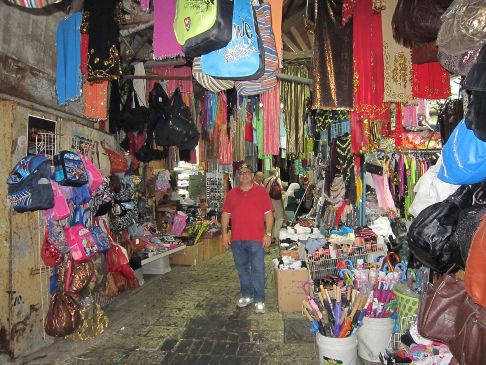
I remember an old Economics professor once lecturing about Perfect Competition, which is a theoretical condition where no participant influences the price of the product that is bought or sold. This particular professor used an Arabian Bazaar as an example of where perfect competition might exist. Some of the conditions for this theoretical marketplace include:
· A large number of buyers and sellers who are ready, willing and able to buy and sell at a certain price.
· Very low or no barriers to entering or exiting the marketplace.
· Prices and quality of goods are known to all participants.
· Very low or near zero cost of transactions on either side.
· Homogeneous product characteristics -- small or no variation in the attributes or characteristics of any product in the marketplace.
There are other conditions required to enable economics students to create pricing models using perfect competition as a benchmark, but they really won't add much to this discussion.
As I walked through the Bazaar in Akko, I noticed several merchants selling similar merchandise. Spice merchants, produce merchants, souvenir merchants, jewelry, shoes, etc. There were several, maybe a dozen or more, of each type of stand. From the perfect competition model my old professor described, I would have assumed that the prices for a spice like Cumin or Paprika would have been identical or at least very, very close from merchant to merchant. And, from the same example, I would have expected prices of a replica, Ark of the Covenant (knocked off from the Raiders of the Lost Ark movie, made in China and sold to tourists as authentic local merchandise) to be similarly priced.
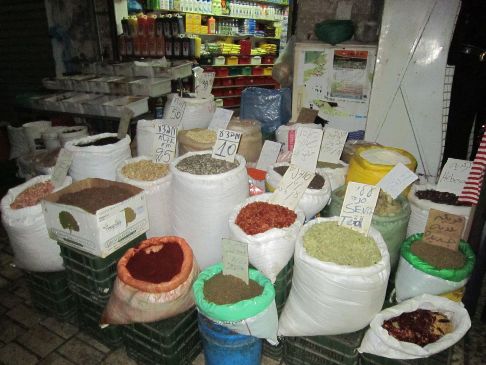
Not even close. Prices varied by what the prospective customer was wearing, who they were with (alone or with a licensed tour guide or from a cruise ship), how aggressive the prospective buyer bargained and several other tangible factors. Stated prices were only a guideline and actual sales prices were absolutely all over the map. Astounding. Here in a veritable sea of identical merchandise, packed in so close that you could hear a deal being made at the competitor's shop, prices varied wildly. So wildly, that I had to try it out for myself. I purchased a golf hat at one stand for 25 Shekels - 10 Shekels under that asking price.Not twenty steps away, I purchased the identical hat for 15 Shekels by just pointing to the competitor's shop - not a word spoken by me. I purchased the identical hat half a block away for 23 Shekels, but I got a small bag of figs to go with it for "free." So much for perfect competition.
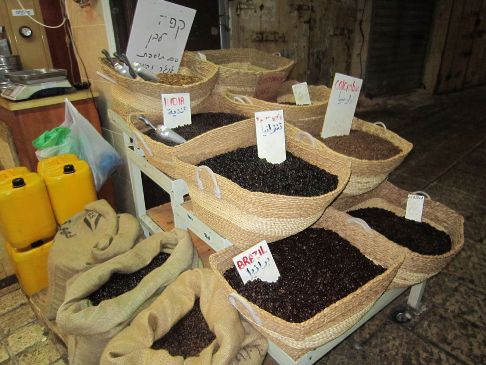
Which brings me to my favorite modern day Arab Bazaar, the Apple App Store. There you can find a WiFi signal monitoring app for free, $.99, $2.99, $4.99 and several more for even higher prices. They all do exactly the same thing on the same devices. The all take advantage of the Apple platform and graphics and they all work fine (otherwise Apple would not approve them for sale). Why are they different prices? How can you tell them apart? How should they be marketed? How are they not commoditized?
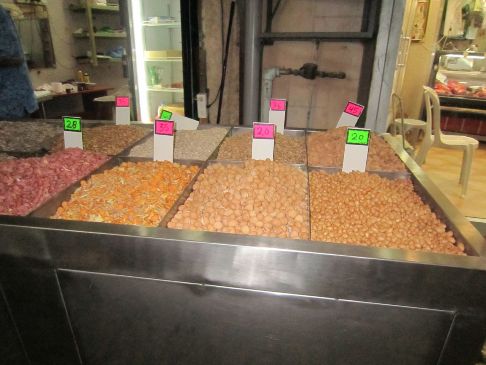
Almost every class and kind of app in the Apple App store is sold under conditions the fit the model for perfect competition. But, like the Arabian Bazaar in Akko, the laboratory conditions do not really exist. Instead we see a vibrant marketplace with a true caveat emptor theme.
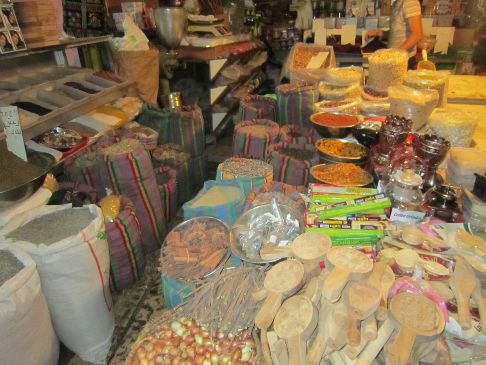
Truthfully, I was tickled to see physical example of the virtual App Store here in Akko. It's not a way that most Americans shop today. I guess everything old truly is new again.
Shelly Palmer is the host of MediaBytes with Shelly Palmer, a daily show featuring news you can use about technology, media & entertainment. He is the author of Television Disrupted: The Transition from Network to Networked TV (2008, New York House Press) and the upcoming, Get Digital: Reinventing Yourself and Your Career for the 21st Century Economy. (2009, Lake House Press). Shelly is also President of the National Academy of Television Arts & Sciences, NY (the organization that bestows the coveted Emmy Awards). For information about Get Digital Classes, visit http://www.shellypalmer.com/seminars.Watch Digital Life with Shelly Palmer Tuesdays at 10p ET on WNBC's NY Nonstophttp://www.shellypalmer.com/digitallife.
Read all Shelly's MediaBizBloggers commentaries at Shelly Palmer - MediaBizBloggers.
Check us out on Facebook at MediaBizBloggers.com
Follow our Twitter updates @MediaBizBlogger


